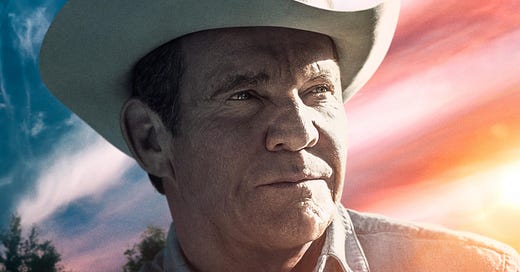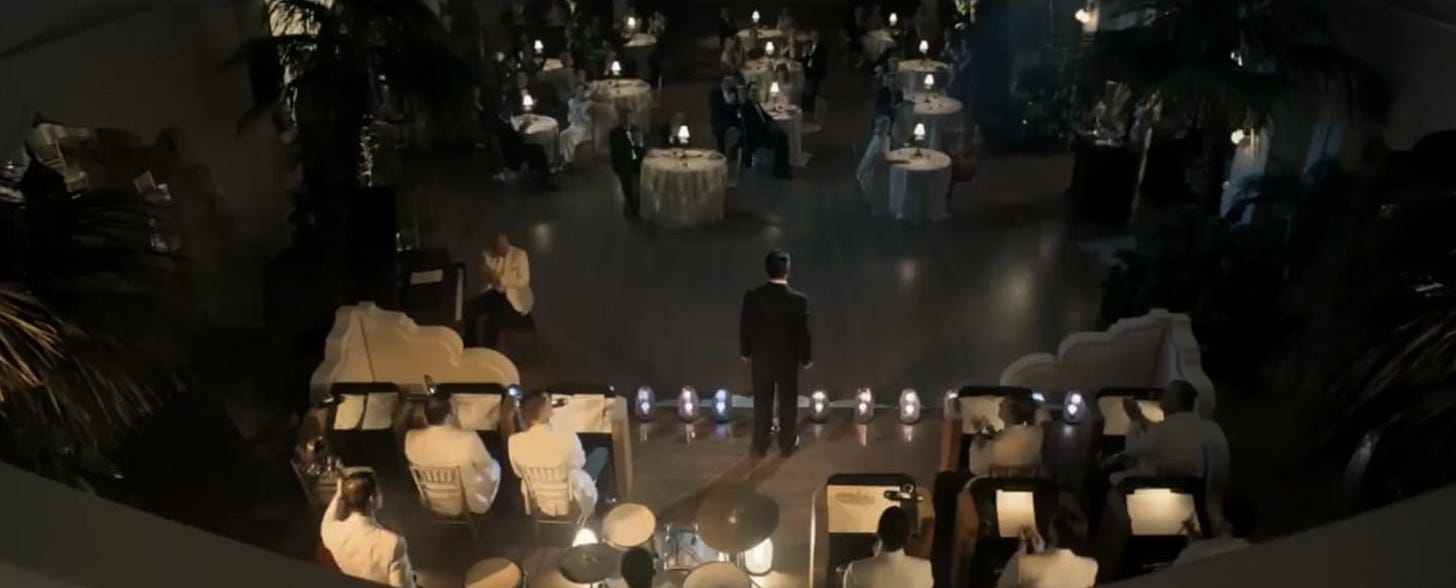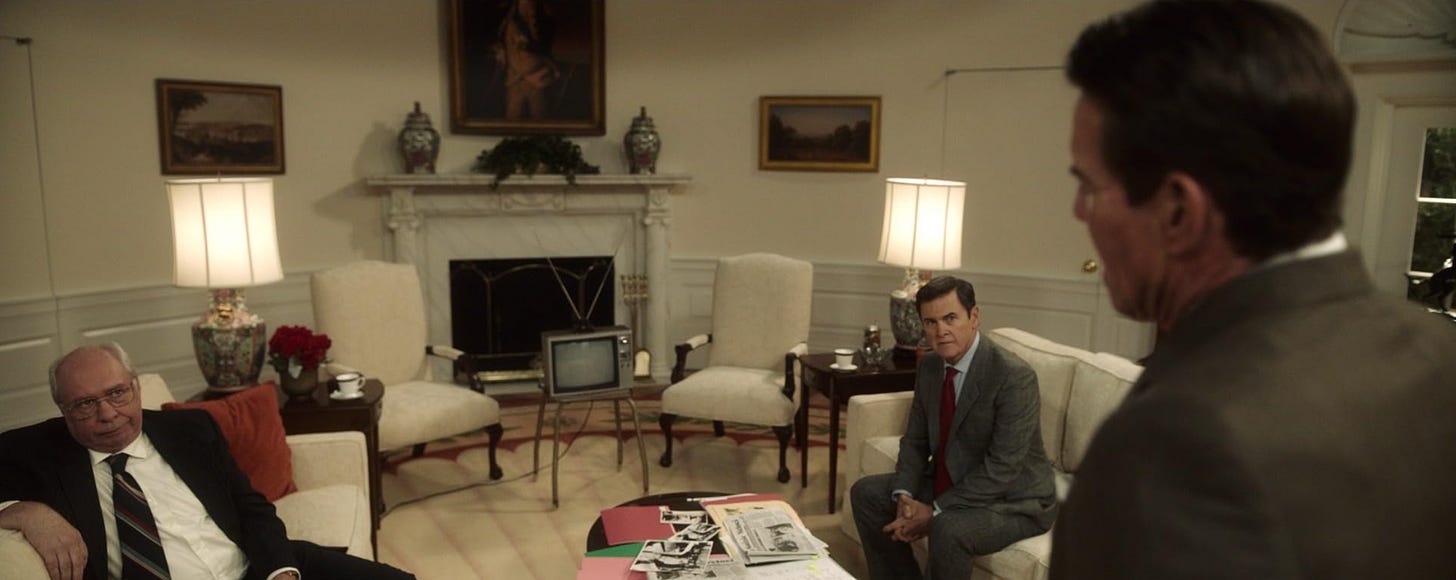Apparently, I’m only writing reviews in 2024 for films with fictitious depictions of the American government.
Great biopics have this weird cost-benefit choice for a director/writer combo to make. How much material is spent creating your characters versus visually depicting historical events? A difficult aspect that doesn’t get enough attention is how logically a biopic plays out its historical events. Every inch closer to something you can show in an AP World class is another character sacrificed to uncreative writing.
Napoleon (2022) is a great recent example of fitting too much into too little time. Films about figures who are monoliths of history can have individual scenes that contain enough historical lore to be expanded into their own film. And while Napoleon is saved by Ridley Scott’s elaborate set pieces and impressive production design, in terms of receiving a substantive, interesting, or even coherent statement on the man himself or the era of history surrounding the French general, you wind up with a really expensive history crash course.
Sean McNamara’s Reagan plays out in an all-too-similar fashion but with the added bonus of bringing writer Howard Klausner’s (let’s say) worldview to life. This isn’t Klausner’s first screenplay published for a more targeted audience, his last being an edition into the God’s Not Dead franchise. And if you can say one thing definitively about his latest work, he’s certainly upfront about how he remembers the Reagan administration.
As a film, Reagan is certainly…one of them. Reagan tells a lot of stories without saying much about them. Klausner is obviously trying to build the character of ol’ Dutch through the memories of his past, but the lens through which we view them feels washed out and uninspired. It’s aided by McNamara’s intoxicatingly heroic depiction of Reagan, which does little to help the feeling that no new insights or perspectives will be gained by the end of your viewing.
I’m not here to make any conclusive statements about the actual Reagan administration. But, ultimately, neither is this film except that everything they did was amazing. In my opinion, that makes for an uninteresting project, and despite what some of its really negative reviews accuse it of, the greatest sin this film commits is boring the audience.
And that isn’t to say we’re missing out on big moments. In fact, it feels as if every moment of Reagan’s life is stuffed into the bloated screenplay. There are even the truly high-stake ones of his attempted assassination and when he saved the world from nuclear annihilation using the incredible power of indecision (even if I’m struggling to confirm if this actually happened).
This goes back to the trade-offs that biopics have. How do you recreate historical events people want to see on the screen but also come away with a coherent message and an artistic vision? There’s some level of fictionalizing of characters required to make them interesting, but you don’t want that to come at the expense of accuracy in your depiction.
Let’s make a really unfair comparison with my favorite film last year which also happened to be a biopic: Oppenheimer (2023). Both Oppenheimer and Reagan are both impactful but controversial figures in history. However, one film spends its enormous run time examining the human behind the historical figure and how the title, “Father of the Atom Bomb,” changed the way he viewed his contribution to history. The other film starts a party that never ends and wraps up with not much more insight into who the 40th president was besides what you’d expect to learn if you got a history lesson from Ted Cruz.
There are always going to be those who see a project like this as pure right-wing propaganda, especially considering the time of year it was released and a not-very-subtle debate scene where Reagan asks the question: were you better off four years ago? While I do think there was definitely an agenda behind producing this film, I don’t necessarily think that in and of itself is wrong. We live in a free country after all. I also do think there are some positive aspects to take away.
Dennis Quaid gives a genuinely good performance as the 40th president, albeit with some unapologetically corny material. He physically embodies Reagan and in my opinion, really nails his voice and mannerisms. Visually, it also has some sweeping shots of Rancho Del Cielo on horseback. Based on how you ultimately feel about the man, I get why someone would walk out of this film with a smile on their face. It aims to make you feel good about a past president. That feeling’s just easier to come by if you already felt good about Reagan before the film started. If you’re relatively neutral, don’t expect to be anything but bored most of the time.
I think with any presidency (or any historical figure for that matter) there’s the good and the bad. Anyone can get into large arguments about the more controversial aspects of Ronald Reagan’s presidency, whether that’s the war on drugs or the response to the AIDs crisis. My biggest issue is that McNamara and co. don’t ever feel interested in addressing those aspects or asking bigger questions than what’s on the surface. Instead, they opt for a washed-out and sterile depiction of a historical figure that is deserving of an earnest retrospective. It’s no surprise that Reagan’s 130-minute run time felt longer than Oppenheimer’s 180 minutes.
That’s going to cause a very black-and-white decision on your feelings toward this film. Those who hate the man will hate the film, and those who love him will likely quite enjoy it. What’s more frustrating than anything is that McNamara never wants to challenge any side’s preconceived feelings. So in an accidental way…maybe this is actually a perfect recreation of the American government??
2/5









